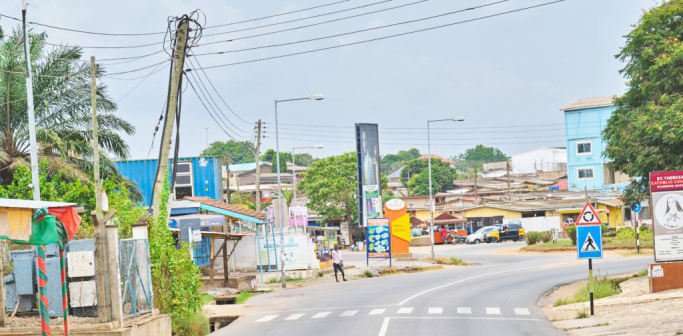Plans under consideration by government to renew the lock down of Ghana’s largest cities, which are also the epi-centres of the ongoing coronavirus pandemic have been completely shelved for now, Goldstreet Business can confirm. This means business enterprises and households can go ahead with their economic plans, without worries that they could be short-circuited imminently by a new lock down as the number of conformed COVID 19 cases in the country not only continues to rise, but is accelerating in pace as well.
The decision by government not to consider a new lock down for now results from a combination of domestic socio-economic considerations and global trends.
From the domestic point of view, the economic and accompanying political factors that led to the lifting of the erstwhile lock down on Accra, Tema. Kumasi and Kasoa remain valid, despite the sharply increasing number of confirmed infections in all of those places; the economic toll during the three week lockdown proved to be intolerably high on government, private enterprises and households alike as well as the macro-economy as a whole. In turn this put political pressure on government with general elections scheduled for barely six months from now.
But beyond this, the phased lifting of lock downs in the United States and several European and Asian countries , which are far more direly affected by the pandemic than Ghana is, due to mounting public disaffection with the restrictions, has completely taken the option of another lockdown off the table in Ghana.
As one senior government official in Accra succinctly puts it, on condition of anonymity: “We cannot re-impose a lock down that affects businesses and households severely, when worse hit countries are lifting theirs, without appearing completely insensitive to the economic plight of our citizens.”
This puts paid to widespread concerns that another lockdown may be in the offing as the rate of COVID 19 infection in Ghana reaches a new high. Indeed, a recent projection by a senior health aide to President Nana Akufo-Addo himself, that three million Ghanaians (more than one-tenth of the entire population) are expected to be infected, with some 100,000 deaths, had been widely seen as a kite being thrown to justify the re-imposition of the lockdown. This has persuaded businesses and households to exercise extreme caution in drawing up expenditure plans and commitments. The decision not to re-impose a lockdown should be reassuring, allowing economic actors to go ahead with their plans.
Nevertheless, the removal of restrictions on movement world wide could be reversed eventually if infections ramp up dramatically, and it this happens, the Government of Ghana would be sorely tempted to follow global trends and reimpose a lockdown too.
Currently however government is now seriously considering a curfew instead, although no firm decision has been made. The rationale behind this idea is that it would allow core economic activity to continue – that carried out during normal working hours – but would curb purely social activities, done after working hours, and which presents the highest risk of further spreading the infections. Effectively a curfew would force most people to restrict their daily activities mainly to work, thereby enabling economic productivity, but would restrict non-economic activity, which mainly occurs after working hours, during the period that a curfew would be in effect.











